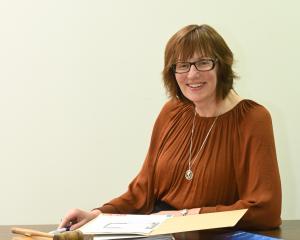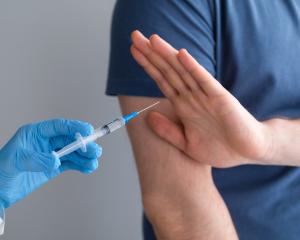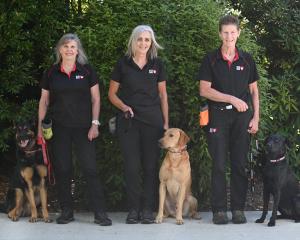However, life trapped him at the bottom of a ruck and spat him out the other side.
In 2013, just when should have been reaching the height of his athletic powers, Mr Pupuali’i was laid low by kidney failure.
"I had a swollen face, and all parts of my body swelled up. I was three times the size I am now ... It was the worst time of my life."

Today, thanks to a remarkable gift from family friend Philippa O’Neill, Mr Pupuali’i is once more playing sport and living a full and active life.
Having known the Pupuali’i family for a decade, and learning of Mr Pupuali’i’s condition, Mrs O’Neill literally gave something of herself for her friend — a kidney.
"I see him getting on with his life and that’s all I wanted — to see him get out of that hospital room," Mrs O’Neill said.
When Mr Pupuali’i’s kidneys started failing, he thought he had the flu and it would all go away.
"I was young and stubborn".However, things got worse, until he went to the Emergency Department and his condition was diagnosed.
"I couldn’t process it when the doctor spoke those words to me, ‘you have kidney failure’. I was in tears," a still emotional Mr Pupuali’i said.
"Still today I think about it, and I’m very grateful to be here, because I am a very different person today ... I cherish this kidney which my lovely donor gave me."
However, in 2013 the transplant was some time away: Mr Pupuali’i had three years of dialysis ahead of him — a medical procedure which kept him alive, but meant he was hooked up to a machine for six hours every second day.
"I was fresh out of high school, I was going to trial for the rugby club, study, but things didn’t work out and I had to put everything on hold because dialysis was consuming most of my life."
Mrs O’Neill visited Mr Pupuali’i in hospital after his diagnosis.
As a long-standing blood donor, it was not a major step for Mrs O’Neill to decide she wanted to become a live kidney donor.
Voluntary kidney donation is a painstaking process which involves tissue and blood type compatibility tests, as well as psychological screening and regular reassessments to ensure the donor remains willing to undergo what is a major operation.
"It takes a long time, and I just wanted to get on with it," Mrs O’Neill said.
"I don’t mean to downplay it, but for me personally it wasn’t a big operation at all. It was keyhole surgery and I had a very good surgeon in Christchurch."
Mr Pupuali’i was not surprised by Mrs O’Neill’s offer of a kidney.
"I knew right from the start that she is a very giving lady," he said.
"She didn’t hesitate, she knew exactly what she wanted to do, and I will always be grateful ... I have been rewarded with a second chance in life."












